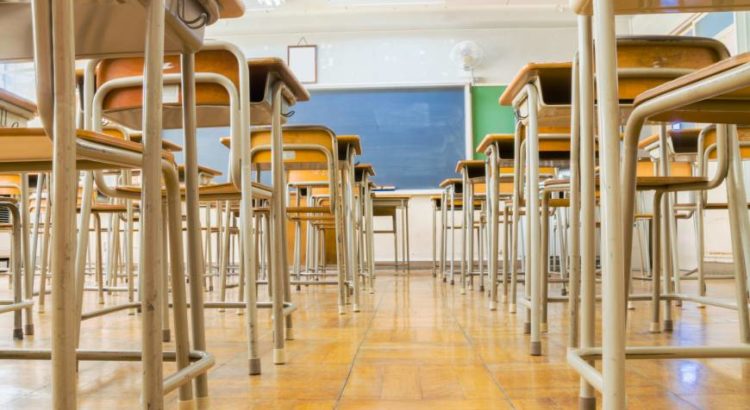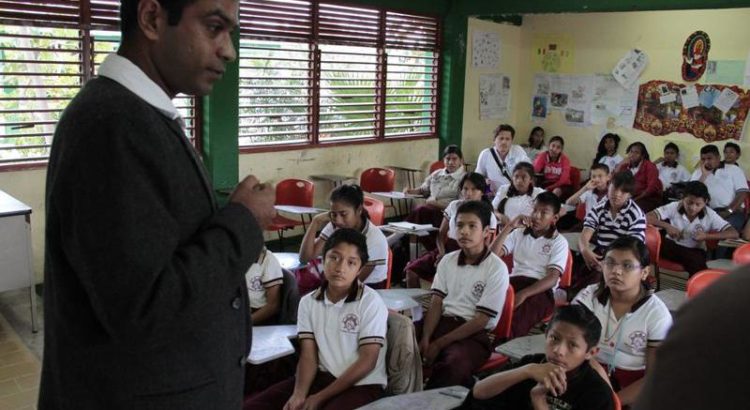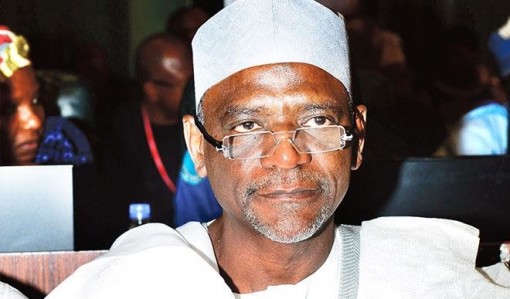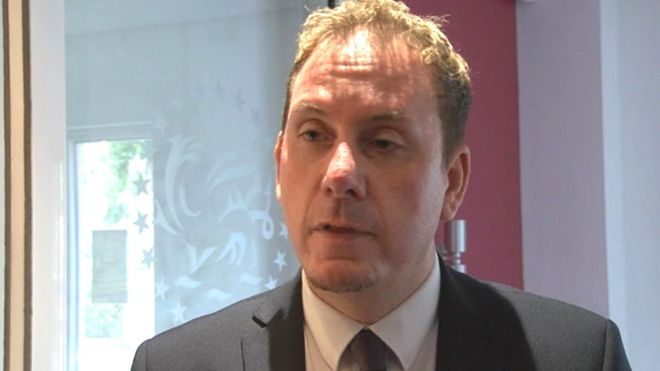By: Dr. Henry Giroux
The Nobel Prize-winning author Ngugi wa Thiong’o has insisted rightfully that «Children are the future of any society,» adding, «If you want to maim the future of any society, you simply maim the children.» (1)
As we move into the second Gilded Age, young people are viewed more as a threat than as a social investment.
If one important measure of a democracy is how a society treats its children – especially children of color, poor and working-class youth, and those with disabilities – there can be little doubt that the United States is failing. Half of all public school children live in near poverty, 16 million children receive food stamps and 90 percent of Black children will be on food stamps at some point during childhood. (2) Moreover, too many children are either incarcerated or homeless.
The National Center on Family Homelessness reports that «One in 45 children experience homelessness in America each year. That’s over 1.6 million children. [Moreover] while homeless, they experience high rates of acute and chronic health problems. The constant barrage of stressful and traumatic experience also has profound effects on their development and ability to learn.» (3) Sadly, these statistics rarely scratch the surface of the dire and deep-seated problems facing many young people in the richest country in the world, a state of affairs that provokes too little public outrage.
Teachable Moment or Criminal Offense?
Every age has its approach to identifying and handling problems. As we move into the second Gilded Age, young people are viewed more as a threat than as a social investment. Instead of being viewed as at-risk in a society that has defaulted on its obligations to young people, youth today are viewed as the risk itself. Instead of recognizing the social problems and troubles they face – ranging from poverty to punishing schools – our society sees youth as spoiled or threatening. (4) One consequence is that their behaviors are increasingly criminalized in the streets, malls, schools and many other places once considered safe spaces for them. As compassion and social responsibility give way to punishment and fear as the most important modalities mediating the relationship of youth to the larger social order, schools resort more and more to zero-tolerance policies and other punitive practices. Such practices often result in the handing over of disciplinary problems to the police rather than to educational personnel.
Children are being punished instead of educated in US schools.
With the growing presence of police, surveillance technologies and security guards in schools, more and more of what kids do, how they act, how they dress and what they say are defined as a criminal offense, regardless of how trivial the offense may be – in some cases just doodling on a desk or violating a dress code. Such behaviors, which teachers and administrators use to regulate through everyday means, are now treated as infractions within the purview of the police. Consequently, suspensions, expulsions, arrests and jail time have become routine for poor youth of color. Even more shocking is the rise of zero-tolerance policies to punish Black students and students with disabilities. (5) Instead of recognizing the need to provide services for students with special needs, there is a dangerous trend on the part of school systems to adopt policies «that end in seclusion, restraint, expulsion, and – too often – law enforcement intervention for the disabled children involved.» (6) Sadly, this is but a small sampling of the ways in which children are being punished instead of educated in US schools, especially inner-city schools. Rather than treating school infractions as part of the professional responsibilities of teachers and administrators, schools are criminalizing such behaviors and calling the police. What might have become a teachable moment becomes a criminal offense. (7)
Since the 1990s, the US public has been swamped by the fear of an alleged rise in teenage crime and what was called a superpredator crisis. This crisis was largely popularized by John J. DiIulio Jr., then a political scientist at Princeton University, who argued without irony «that hordes of depraved teenagers [were about to resort] to unspeakable brutality, not tethered by conscience.» (8) Politicians, intellectuals and news organizations were convinced that young people posed a dire threat to the US public and not only reveled «on these sensational predictions [but also] ran with them like a punt returner finding daylight.» (9) While such chaos proved to be nonsense, the theses spawned a plethora of disciplinary practices in schools, such as zero-tolerance policies, which have turned them into institutions that resemble prisons with students being subjected to harsh disciplinary practices, particularly poor black children and children suffering from mental health problems, such as ADHD.
Policing Students in Classrooms and on Playgrounds
These harsh practices have been inflicted disproportionately on poor Black children and children suffering from mental health problems such as attention deficit hyperactivity disorder (ADHD). This was on full display as social media lit up with a video that disclosed an 8-year-old boy in the third grade in an elementary school classroom in Covington, Kentucky, screaming in pain because he was being handcuffed with his arms placed behind his back. (10) Standing beside the child is police officer, Deputy Sheriff Kevin Sumner, who issues the chilling message, «You either behave the way you are supposed to or you suffer the consequences.» The child, it was later revealed, suffers from a learning disability. According to the Guardian’s Ed Pilkington, «Charles Korzenborn, the sheriff in Covington, Kentucky … defended the officer … claiming that the police officer, Kevin Sumner, had done absolutely nothing wrong. The sheriff said his deputy had done ‘what he is sworn to do and in conformity with all constitutional and law enforcement standards…. I steadfastly stand behind Deputy Sumner who responded to the school’s request for help. Deputy Sumner is a highly respected and skilled law enforcement deputy, and is an asset to the community and those he serves.'» (11) Allegedly, Sumner was responding to the school’s call to diffuse «a threat.» It is hard to imagine what kind of threat a 3.5-foot tall 8-year-old elementary school child posed to either the school or to the police. At work here is not only a kind of bizarre rationality in which one becomes an asset to the community by handcuffing and arresting an 8-year-old boy but also the scourge of a willful ignorance which is the refusal to know or to recognize when an act of violence is being committed against a child.
Schools are considered dangerous because they are public, not because they are failing.
The sheriff’s unhinged defense of Sumner becomes even more apparent in light of the fact that it has been revealed that Sumner had engaged in similar behavior earlier in 2014. At that time, he participated in the handcuffing at John C. Carlisle Elementary School of a 9-year-old girl living with ADHD. At one level, this case reveals why police should not be in public schools in the first place and that the targeting of children by criminalizing their behavior represents the antithesis of how a school should treat its children. It also suggests something about the low regard the public has for public schools and the lives of our nation’s youth, especially poor children of color.
While the image of an 8-year-old boy handcuffed in an elementary school classroom in Covington, Kentucky, has rightfully drawn a great deal of attention on social media and in the mainstream news, it is far from unique. In 2013, a diabetic student in an Alabama high school was arrested and beaten for falling asleep in a classroom. (12) In 2013, Bronx police falsely accused a 7-year-old boy and «put him in handcuffs and held him in custody for ten hours after a playground fight» in which he was falsely accused of stealing $5 from another student. (13) It gets worse. The US Department of Justice filed a lawsuit in November 2012 charging that the Meridian, Mississippi, school district functioned largely as a school-to-prison pipeline, disproportionally focusing on Black youth. According to the Justice Department’s 37-page complaint, the Meridian school district engaged in «years of systemic abuse [which punished] youth ‘so arbitrarily and severely as to shock the conscience.'» (14)
As Julianne Hing reports,
In Meridian, when schools want to discipline children, they do much more than just send them to the principal’s office. They call the police, who show up to arrest children who are as young as 10 years old. Arrests, the Department of Justice says, happen automatically, regardless of whether the police officer knows exactly what kind of offense the child has committed or whether that offense is even worthy of an arrest. The police department’s policy is to arrest all children referred to the agency. Once those children are in the juvenile justice system, they are denied basic constitutional rights. They are handcuffed and incarcerated for days without any hearing and subsequently warehoused without understanding their alleged probation violations. (15)
The Meridian case makes clear what numerous reports have indicated for years: not only that zero-tolerance measures have failed, but also that they have made schools less secure, resulted in criminalizing student behavior and contributed to what has been called the school-to-prison pipeline, especially for poor youth of color. As the American Civil Liberties Union (ACLU) points out, the school-to-prison pipeline is a «disturbing national trend wherein children are funneled out of public schools and into the juvenile and criminal justice systems. Many of these children have learning disabilities or histories of poverty, abuse, or neglect, and would benefit from additional educational and counseling services. Instead, they are isolated, punished, and pushed out.» (16) Putting the police in schools has little to do with improving the learning environment for children and a great deal to do with criminalizing students «for behavior that should be handled inside the school. Students of color are especially vulnerable to push-out trends and the discriminatory application of discipline.» (17)
The war on youth and public schools is part of the larger assault on democracy itself.
The increasing criminalization of students of color, poor students and students with disabilities is taking place in the context of a broader attack on public schools as a whole. Like many institutions that represent the public good, public schools are under attack by market, religious and educational fundamentalists. Schools are considered dangerous because they are public, not because they are failing. State and corporate leaders are seeking to take power out of the hands of public school teachers and administrators because public schools harbor teachers with the potential to engage in pedagogies that are imaginative, empowering, critical and capable of connecting learning with the practice of freedom and the search for justice. The pedagogies of oppression – whether in the form of high-stakes testing, teaching for the test, imposing punitive disciplinary measures or the construction of relations that disempower teachers and empower security guards – are part of a broader attempt to destroy the social state and the institutions that produce the formative culture necessary for a democracy.
Students Are Not Criminals
There are no safe spaces left in the United States. As almost every aspect of society becomes militarized, the imposing apparatuses of the police state become more and more obvious, reckless and dangerous, and include more than the arming of local police forces.
As Chase Mader observes:
Even as simple a matter as getting yourself from point A to point B can quickly become a law enforcement matter as travel and public space are ever more aggressively policed. Waiting for a bus? Such loitering just got three Rochester youths arrested. Driving without a seat belt can easily escalate into an arrest, even if the driver is a state judge. (Notably, all four of these men were black.) If the police think you might be carrying drugs, warrantless body cavity searches at the nearest hospital may be in the offing – you will be sent the bill later. Air travel entails increasingly intimate pat-downs and arbitrary rules that many experts see as nothing more than ‘security theater.’ As for staying at home, it carries its own risks as Harvard professor Henry Louis Gates found out when a Cambridge police officer mistook him for a burglar and hauled him away – a case that is hardly unique. (18)
The rise of the punishing and police state depends on conformity, the squelching of dissent and the closing down of any institution capable of educating the young and old to hold authority accountable. More specifically, pedagogies of oppression are a central tool for dismantling critical learning and dissent and for increasing the power of the punishing state. Under the reign of neoliberalism, all things public are under attack, from schools to health care to public servants. The war on youth and public schools is part of the larger assault on democracy itself. The controlling elite view schools as dangerous to their interests. For the financial elite, right-wing ideologues and billionaires such as the Walton family, the Koch brothers and Bill Gates, public education must be defunded, broken and privatized because it contains the potential to educate young people to question authority and hold it accountable, and produce civically literate and socially engaged students and critically engaged citizens.
Schools are not prisons, teachers are not a security detail and students are not criminals. Schools should model the United States’ investment in children and to do so they need to view young people as a resource rather than as a threat. If public schools are going to improve they have to be appropriately funded. That means, raising corporate taxes, cutting the defense budget, and allocating funds that contribute to the public good. It also means closing down and defunding those financial and military institutions that produce misery and destroy human lives, especially the lives of children. Educators should be given the power, autonomy and resources to be able to work closely with children in order to provide them with the conditions for meaningful learning while providing safe spaces for them to be nourished ethically, intellectually and spiritually. Schools are a public good and should be defined as such. How the United States invests in schools will shape an entire generation of young people. The lesson these youth should not be learning is that they can’t be trusted and should be treated as criminals. That view of schooling is one we associate with totalitarian states, not with a genuine democratic society.
Footnotes:
1. Ngugi wa Thiong’o, Moving the Centre: The Struggle for Cultural Freedom(London: James Currey, 1993), p. 76.
2. Lindsey Tanner, «Half of US Kids Will Get Food Stamps, Study Says,» The Associated Press (November 2, 2009). Online: http://www.huffingtonpost.com/2009/11/02/food-stamps-will-feed-hal_n_342834.html
3. Cited from the website of The National Center on Family Homelessness. Online: http://www.familyhomelessness.org/children.php?p=ts
4. I have taken this issue up in great detail in Henry A. Giroux, Youth in a Suspect Society: Democracy or Disposability (New York: Palgrave, 2009). See also Kenneth Saltman, ed. Kenneth J. Saltman, David A. Gabbard, eds. Education as Enforcement: The Militarization and Corporatization of Schools (New York: Routledge, 2010).
5. Joy Resmovits, «American Schools Are STILL Racist, Government Report Finds,» The Huffington Post (March 21, 2015). Online: http://www.huffingtonpost.com/2014/03/21/schools-discrimination_n_5002954.html
6. s.e. smith, «Police Handcuffing 7-Year-Olds? The Brutality Unleashed on Kids With Disabilities in Our School Systems,» AlterNet (May 22, 2012). Online: http://www.alternet.org/story/155526/police_handcuffing_7-year-olds_the_brutality_unleashed_on_kids_with_disabilities_in_our_school_systems?page=entire
7. Staff, Rethinking Schools, «Stop the School-to-Prison Pipeline» Truthout, (Jan. 15, 2012).
8. Clyde Haberman, «When Youth Violence Spurred ‘Superpredator’ Fear,» The New York Times (April 6, 2014). Online: http://www.nytimes.com/2014/04/07/us/politics/killing-on-bus-recalls-superpredator-threat-of-90s.html?_r=0
10. The video can be seen here: Ed Pilkington, «Kentucky sheriff ‘steadfastly’ defends officer who handcuffed 8-year-old,» The Guardian (August 4, 2015). Online: http://www.theguardian.com/us-news/2015/aug/04/kentucky-sheriff-defends-officer-handcuffed-child
12. Alex Kane, «Diabetic High School Girl Beaten by Police Officer and Arrested – For Falling Asleep in Class,» AlterNet, (May 7, 2013).
13. Natasha Lennard, «NYPD Handcuff, Interrogate 7-Year-Old Over $5,» AlterNet, (January 30, 2013). Online: http://www.alternet.org/news-amp-politics/nypd-handcuff-interrogate-7-year-old-over-5
14. Julianne Hing, «The Shocking Details of a Mississippi School-to-Prison Pipeline,» Truthout, (December 3, 2012). Online: http://truth-out.org/news/item/13121-the-shocking-details-of-a-mississippi-school-to-prison-pipeline
16. American Civil Liberties Union, «School-to-prison-pipeline,» ACLU Issues (August 5, 2015). Online: https://www.aclu.org/issues/racial-justice/race-and-inequality-education/school-prison-pipeline
18. Chase Madar, «Everyone Is a Criminal: On the Over-Policing of America», The Huffington Post. (December 13, 2013). Online: http://www.huffingtonpost.com/chase-madar/over-policing-of-america_b_4412187.html
Source:
http://www.truth-out.org/news/item/32238-schools-as-punishing-factories-the-handcuffing-of-public-education














 Users Today : 61
Users Today : 61 Total Users : 35460444
Total Users : 35460444 Views Today : 106
Views Today : 106 Total views : 3419269
Total views : 3419269